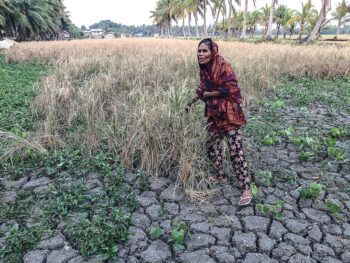GENERAL SANTOS CITY (MindaNews/09 Dec.) – Sarangani will likely post zero incidence of the mosquito-borne malaria this year based on its record in the last 11 months and with only three weeks left before 2014, provincial health officials said.
They said the province posted a clean record from January to November and is now focusing on totally eradicating the disease.
Dr. Arvin Alejandro, acting Sarangani health officer, said in a statement that they have intensified their monitoring and control activities for malaria in areas where it had been noted to be prevalent in a bid to sustain its zero incidence.
He said that from the 1,700 malaria cases recorded in 2006, the disease’s incidence in the province gradually went down these past years due to the local government’s institutionalization of its anti-malaria program.
Malaria cases in the area eventually dropped to 37 in 2010, 28 in 2011, four in 2012 and zero so far this year, he said.
According to the Department of Health (DOH), a province may be declared as malaria-free if it sustains zero incidence of indigenous case of the disease for five consecutive years.
As of the third quarter of the year, the DOH in Region 12 reported three confirmed cases of malaria in Sarangani but none of them was reportedly caused by local transmission.
The patients were noted to have history of travel two weeks before they were diagnosed with malaria to endemic areas in Indonesia, Papua New Guinea and a part of Africa.
A report released by DOH-12’s Regional Epidemiology and Surveillance Unit showed that the region’s malaria incidence has so far reached 27 or two more than last year’s figures.
Region 12 comprises the provinces of South Cotabato, Sultan Kudarat, Sarangani, North Cotabato and the cities of General Santos, Koronadal, Tacurong, Kidapawan and Cotabato.
Not a single death was so far recorded this year, a significant improvement compared to the two fatalities during the period last year.
Sultan Kudarat posted the most number of confirmed malaria cases with 13, followed by North Cotabato with seven, Sarangani and this city with three each and Cotabato City with one. South Cotabato has not recorded a single case of malaria.
Alejandro credited the significant reduction of malaria cases in the province to the sustenance of the local government’s anti-malaria initiatives sat the barangay level since 2007.
He said the program was supported by the Pilipinas Shell Foundation Inc., which gave around P25 million for the area through the Global Fund’s malaria program.
In support to the program, he said the Saragani Provincial Health Office mainly helped in the strengthening of local support systems in the fight against malaria.
“We trained a lot of field personnel, identified specific areas and communities for the anti-malaria operations and collaborated with other program implementers to make our efforts more comprehensive,” he said.
To sustain their zero case record, Alejandro said his office has expanded the containment of the disease to adjacent barangays of other neighboring municipalities where the disease had been known to be endemic.
He specifically cited areas near the coastal town of Glan where the transmission of cases was earlier confirmed and portions of Palimbang town in Sultan Kudarat.
“We’re presently strengthening our interventions at the community level and we’ve been empowering our local leaders so we can tap them for our disease surveillance and control efforts by next year,” he added. (MindaNews)
